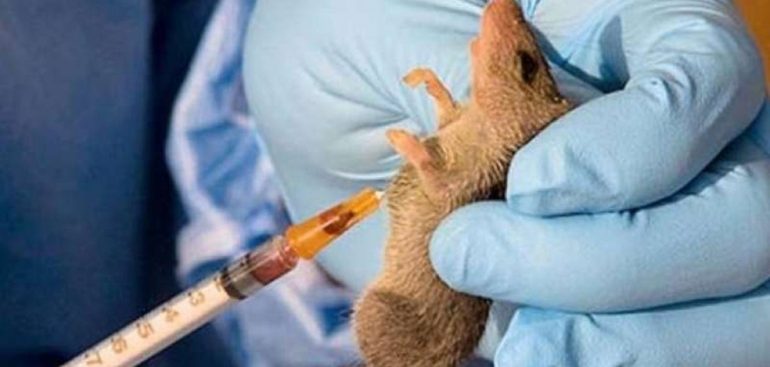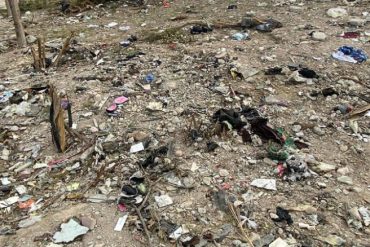February 6, 2020 5:24 am0
In juxtaposing the spread of Lassa fever to 19 states, which has infected over 250 persons and killed at least 41 Nigerians, with the increased spread of novel Coronavirus from China to 28 countries, Martins Ifijeh writes that there is no time more apt for epidemic preparedness in Nigeria
Ever heard of two of the world’s most deadly disease outbreaks; the Justinian plague and the Bulbonic plague? They both spread across Europe, Asia, Arabia and Africa centuries ago, killing several millions of people and living the world scampering for solutions.
Both plagues, although happened 800 years apart, were spread to humans by rodents whose fleas carried the bacteria and lived in the blood of their victims, causing pus, fever, respiratory problems and death.
Researchers believed the pandemics spread quickly because hygiene education was low at the time, and not much was known about disease spread from rodents and other animals to humans, and then, from humans to humans.
These researchers were sure few years after the last outbreak, the nature of both diseases would have been understood enough to stop any other pandemic emanating from rodents or other animals.
But the researchers were wrong. Six centuries after, different strains of diseases from rodents or other animals are still killing humans. From Ebola Virus Disease (EVD) to Severe Acute Respiratory Syndrome (SARS), to Zika virus, the list has continued to grow despite technological and medical advancements.
While these diseases have remained a nightmare globally, two have in the past one month become a major source of concern to Nigerians, the government and healthcare stakeholders. They are the Lassa fever virus, which originated from Nigeria some 50 years ago and has refused to disappear, and then the more threatening plague, the novel Coronavirus, which originated in Wuhan city in China since middle of December 2019, and has so far killed over 450 persons, infecting over 18,000, and has spread to at least 28 countries.
Although the Nigerian government, every time there is a Lassa fever outbreak, assures Nigerians that it was addressing the public health challenge, indications show the disease is not winding down anytime soon, especially as it has continued every year to be more daring.
According to reports, the outbreak has so far killed 41 persons, infected at least 253 with suspected cases at 689, and a case fatality rate of 15.9 per cent; all as at January 26, 2020.
The outbreak has also affected 19 states, including Edo, Ondo, Ekiti, Delta, Rivers, Abia, Kaduna, Benue, Taraba, Kano, Borno, Nasarawa, Kogi, Adamawa, Plateau, Bauchi, Osun, Ebonyi, Ogun, and Enugu.
The figures from the current outbreak shows the number of deaths has increased with case fatality rate at 15.9 per cent which is lower than that of first four weeks of January, 2019.
The World Health Organisation believe Lassa fever is largely transmitted through contact with items or surfaces contaminated with urine, faeces, saliva or blood of infected rats. It can also be transmitted from person-to-person through contact with blood, urine, faeces and other body fluids of an infected person.
According to figures from the Nigeria Centre for Disease Control (NCDC) in the week-four Lassa Fever Situation Report, in total for 2020, the 19 affected states have recorded at least one confirmed case across 60 local government areas, with Edo State leading the pack with 89 per cent, Ondo State 38 per cent, and Ebonyi 11 per cent.
The NCDC report also shows the predominant age group affected is 11-40 years, with male to female ratio placed at 1:1, noting that five health workers in Kano (three), Taraba (one) and Borno (one) were affected.
The WHO has classified Lassa fever as an acute viral haemorrhagic illness caused by Lassa virus, an arenavirus emerging with contamination of foods by infected rodent.
The disease was first discovered in Nigeria’s North-eastern Borno State in 1969 after a white missionary woman fell sick, according to the Health Ministry in Borno, and the virus, overtime is endemic in African countries, including Nigeria, Niger, Ghana, Guinea, Liberia, Sierra Leone, Mali, Togo and the Northern part of Cameroon.
Meanwhile, the federal government said it was putting measures in place to address the present outbreak.
The Chief Executive Officer, NCDC, Dr. Chikwe Ihekweazu said the federal government has established a National Emergency Operation Centre which has representatives from the National Emergency Management Agency (NEMA), Federal Ministry of Agriculture and Rural Development, Federal Ministry of Environment, World Health Organisation, United Nations Children’s Fund, United States Centers for Disease Control, and other partners.
“The NCDC continues to support states in strengthening their preparedness and response capacity. Over the last three weeks, NCDC has deployed Rapid Response Teams to support five of the affected states. The Minister of Health, Dr. Osagie Ehanire led a high-level delegation to Kano State on the 25th of January 2020, following the deaths of two health workers infected with Lassa fever.
“In addition, NCDC has rapidly increased risk communications and community engagement activities to ensure that Nigerians are aware of the risks of Lassa fever and measures to protect themselves,” he added.
He said five laboratories in Nigeria have the capacity to diagnose Lassa fever in Nigeria. These laboratories are critical to reducing turnaround time between identifying a suspected case and confirmation. This ensures prompt case management and other response activities, thereby reducing the number of deaths.
To minimise the risk of infection, members of the public are advised to ensure their environment is always kept clean to avoid contact with rodents.
Meanwhile, as the Nigerian government continues to tackle Lassa fever internally, there seems to be a looming threat outside the country’s borders, with the novel Coronavirus outbreak which has posed to have high spread-rate, and now threatening the national health security of the country.
It has so far claimed over 450 lives, with at least 18000 persons infected, while 28 countries are said to be affected.
Countries so far affected are; Japan, Thailand, South Korea, Taiwan, Singapore, Malaysia, Germany, Macau, Australia, Hong Kong, United States, France, Vietnam, Canada, UAE, Italy, Russia, Cambodia, Finland, India, Nepal, Cambodia, Finland, Sri Lanka, Sweden, Philippine which has had one fatality, and of course China.
The Nigerian government said it was putting measures in place to prevent its spread into the country. But Nigerians have continued to express concerns, especially since countries with better capacity to contain it have not yet come up with desirable outcomes.
WHO says a Coronavirus is a virus that causes infection in the nose, sinuses or upper throat, and can be transmitted from animal to human or from human to human just like the mode of spread of the dreaded EVD.
Although many may argue that the chances of the virus reaching Nigeria is around average because of the partial lock down on over 150 million persons in China where the outbreak is concentrated, same was said in 2014 when Ebola outbreak started, until it found its way to Nigeria, claiming eight productive lives, some $180 million in cost, and throwing the entire nation into panic.
With Nigerians known for their high trading partnerships with China, the virus is closer to the country than expected. But is our health security system strong enough to prevent the virus from entering the country? Is it strong enough to manage the virus should it find its way in?
As part of measures to ensure the virus does not spread into Nigeria, the federal government has called on travellers from China or those exposed to travellers from the Asian country to subject themselves to self-quarantine for 14 days before they can interact with other members of the society.
The Minister of Health, Dr. Osagie Ehanire, said national health security measures have been heightened, with surveillance mounted in all borders to prevent the spread.
He said: “If you screen anybody properly at the borders, check their travel histories and routes, it will help us a lot in ensuring the virus doesn’t get in.
“So far, we do not have plans to stop Nigerians from traveling to China or coming from China because there are international health regulations that must be followed on public health concerns. No country has done that.
“We have issued advisory to Nigerians, including states, public health facilities, as well as private facilities. This advisory is intended to be trickled down up to primary health facilities also, because they are actually closer to the people,” Ehanire said.
He also mentioned recently, that should the virus find its way into Nigeria, the health ministry has the capacity to manage it.
Prevention Tips
The minister of health said Nigerians should continue their normal routine of hand washing with running water, cover their mouths with handkerchief while coughing, and report early to hospitals if they notice fibril symptoms.
He said: “On our part as government, we are on 100 per cent alert. We will continue to make sure our international airports are adhering to the surveillance protocols we have put in place. As we speak now, I am in Kano International Airport to meet with our Ports Heath Service officials to monitor level of compliance.
“If we screen anybody properly at the borders, check their travel histories and routes and do the needful from there, it will help us a lot in ensuring the virus doesn’t get in. Nigeria is on full alert with the health ministry leading Port Health Services and the Nigeria Center for Disease Control (NCDC).”
Among guides released by the WHO, persons are advised to avoid touching their eyes, nose or mouth with unwashed hands; as well as avoid close contact with people who are sick.
On how to protect others for those with cold-like symptoms, they should seek immediate medical attention, avoid close contact with others, cover mouth and nose with tissue when coughing or sneezing, throw tissue in the trash after use, wash hands and clean and disinfect objects and surfaces.
Treatment
Health experts believe there are currently no vaccines available against human Coronavirus infection. They also mentioned that there are no specific treatments for illnesses caused by human Coronaviruses, adding that most people with common human Coronavirus illness will recover on their own. “However, you can do some things to relieve your symptoms like taking pain and fever medications (Caution: do not give Aspirin to children) use a room humidifier or take a hot shower to help ease a sore throat and cough. If you are mildly sick, you should drink plenty of liquids, among others,” they recommended




